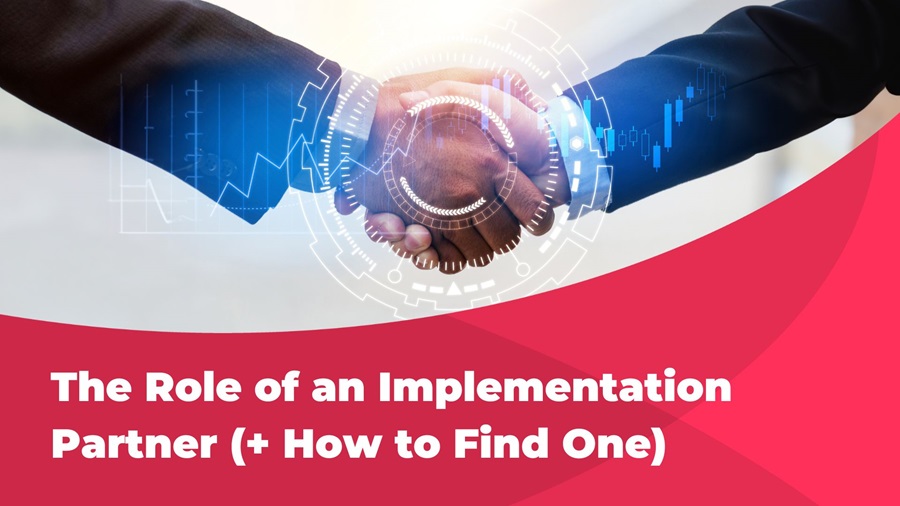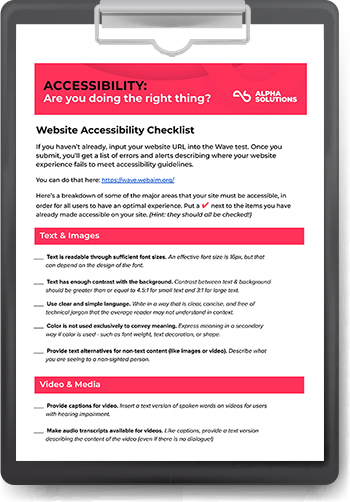Digital technology is growing increasingly complex to keep up with ever-evolving consumer demands and trends such as personalization in marketing.
These complexities can pose significant challenges to IT and marketing departments, often pushing their skills (and bandwidth) to the limit.
If you’re feeling this type of pressure in your company—where internal resources can’t keep up with your growing digital needs—it would be wise to onboard a strategic technology partner to manage things.
Some platforms that a strategic technology partner can help with include:
-
Sitecore
-
Oracle
-
Optimizely
-
Adobe
To walk you through an example, let’s imagine that you’ve decided to move to composable architecture and chose Sitecore as the platform that will help you reach your business goals.
You might assume that you could engage directly with Sitecore to manage the implementation for you. However, working directly with a technology vendor isn’t always the best option, and sometimes it’s not an option at all.
Technology vendors have a primary focus on product development.
Their efforts generally go into improving and supporting their products, and they generally don’t offer implementation services.
But suppose your tech team is already stretched too thin. In that case, you will definitely need to enlist the help of a digital technology consultant or implementation partner—preferably one that’s platform-agnostic and capable of collaborating with you and your software vendor.
Engaging with a strategic technology partner will allow your core team to focus on its primary, day-to-day work. At the same time, you benefit from the knowledge and expertise of a third-party professional.
It’s the perfect win-win scenario.
Benefits of working with an implementation partner:
Returning to our example above, let’s say that Sitecore is your chosen platform.
First, you’ll need to begin your search for a Sitecore solution partner.
⭐ A Sitecore solution partner undergoes an extensive certification process, ensuring they have a deep understanding of Sitecore's full suite of solutions.
Think of this certification as a seal of approval from Sitecore that the partner has demonstrated the technical knowledge and strategic insight necessary to maximize the value of Sitecore for your business.
Tip: Ensure that your implementation partner has certifications under their belt.
🤓 A Sitecore certified partner is equipped with the latest best practices, technological advancements, and industry-specific expertise.
The Sitecore partner understands the intricacies of 'headless' content management. (This enables front-end developers to focus on creating the best user experience while back-end developers concentrate on core functionalities.)
Tip: Upgrading technology requires cutting-edge solutions and expertise. Look for that in their work examples.
📈 A Sitecore implementation partner will play a critical role in the success of your platform development and, by extension, your entire long-term growth strategy.
Tip: Implementing new technology is more than just slapping some code together. Find someone with strategic business expertise.
When choosing an implementation partner, it’s important to note that this expert–or team of experts—will do more than just cross tasks off a to-do list.

Your strategic technology partner will be responsible for…
🗺️ Guiding your platform installation and integration process.
💡 Offering valuable business insights and suggestions based on your unique business case.
🤔 Asking pertinent questions and challenging your goals where they deem necessary.
Implementing a new platform will be a large and complex undertaking.
Your implementation partner will become a valuable extension of your team, acting as a strategic technology partner and advisor, bringing their wealth of knowledge and experience from previous projects to yours.
How do you know which implementation partner will be the best fit?
Choosing an implementation partner goes beyond their affiliation with a platform or reading Google reviews.
Other, more critical attributes can significantly impact your implementation’s overall success.
We’ve put together a list of considerations to make this task easier for you (you might want to remember that when it comes time to choose your implementation partner 😉):
Qualities to Consider When Choosing an Implementation Partner
🎯 A focus on business objectives.
Your potential implementation partner should understand your unique business needs and have the resources to deliver the best-fit solution for your organization.
A technology implementation consultant is not the right fit if they don’t ask about your goals and objectives!
🏅 A goal-getter.
The difference between a good implementation partner and a great one is their level of excitement about helping you reach your goals.
Look for an implementation partner that will not only help you set strategic business goals but one who’s also willing to challenge any objectives you've already set if they see room for improvement.
🧑⚖️ Regulatory knowledge.
Your implementation partner should be well-versed in current market dynamics, including any laws and regulations that may affect how your technology is implemented.
They should also demonstrate the ability to keep up with industry trends and adapt to change so your business doesn’t fall behind.
🔥 Skill supplementation.
Your implementation partner's role shouldn't be limited to development. They should be capable of project management, end-user training, and change management strategies.
This team should be equipped to provide a comprehensive set of services to fill any technical gaps.
🚀 End-to-end participation.
You want an implementation partner that’s invested in the entire process of building out your ideal platform.
Look for someone willing to be with you through it all, from defining requirements and guiding implementation to offering training and post-launch support.
📈 Scalability.
Your implementation partner should be mindful of your growth plan and be able to identify ways to scale the system you're building so you’re prepared for the future.
Bonus points if you can find someone as invested in the growth of your business as you are.
🧠 Stakeholder buy-in.
An experienced implementation partner understands the importance of stakeholder buy-in for successful technology adoption and compliance.
They should know who to engage, when to do so, and how to involve them optimally at different points in the process.
📱 Effective communication.
Make sure your chosen partner is responsive and able to communicate effectively with other developers, end users, and, when necessary, executives. They should also be able to compile and deliver progress reports to keep you up-to-date.
The ability to communicate effectively should be mandatory in an implementation partner.
💯 Technical expertise and certification.
You should be looking for in-depth understanding of the technology you’ve chosen, strong technical knowledge, a proven track record, and any relevant certifications.
You’ll want to see their certifications to ensure they have the technical ability to complete your project.
🥸 A sense of humor.
You will be working very closely with your implementation partner, and there will be times when things go “pear-shaped.” You’re looking for the ability to remain calm under pressure.
You’ll want to work with someone who takes your project seriously, but why not choose a partner who also knows how to have a bit of fun?
💕 Culture of kindness.
Things move fast in the tech industry, and many IT professionals are treated less like humans and more like robots.
Make sure you’re choosing an implementation partner that values their employees, so you have happy people working on your project.
|
How accessible is your website? Get our free accessibility checklist to guide your efforts for getting compliant and doing the right thing. Plus, receive real feedback from us to help you on your next steps. |
In addition to these qualities, good digital technology partners:
-
remain up-to-date with technology
-
·validate their expertise through certifications
-
actively contribute to the vendor’s online community
Once you’ve narrowed down your options, consider asking the following questions to each potential implementation partner before you make your final decision:
1. Do you have your own project managers, or will our internal PM manage your resources?
2. Describe your internal culture. Are your employees happy?
3. Can you train end users on the solution? Can you provide additional resources like job aids or reference cards to supplement vendor documentation, especially if custom configurations necessitate it?
4. Can you assist us with change management strategies and share insights and lessons from previous projects?
5. Do you plan to contact actual users for input and involve them in testing our new platform?
6. Will you prefer to stick with out-of-the-box functionality when it's more usable or economical than customization?
7. Can you clean up our data and work with our internal resources to create a data validation plan/process?
8. Can you support our other business systems and third-party apps that might require data integration?
9. Can you optimize our system's effectiveness with the planned integrations?
10. Do you have knowledge of pricing models and usage scaling in connection with our integrations?
11. Can you develop custom configurations or features for our new system?
12. Will you work with us to (re)design business processes and information flows, including those that fall outside of the technology itself, when necessary?
13. How do you feel about keeping things simple?
14. Who’s your favorite superhero?
At the core of being a technology partner is the dedication to understand and respond to a company's unique needs.
Conclusion
Choosing the right strategic development partner can be a challenging process.
They should be able to demonstrate a robust understanding of:
-
Your business goals
-
The current technological landscape
-
Your specific platform, whether that’s Sitecore or something else.
Ultimately, the right partner should be more than a service provider; they should be a co-creator in your digital transformation journey.
They should be equipped to guide your company through every aspect of system implementation or upgrade, integrating seamlessly as a member of your team.
In addition, the right strategic technology partner should also align culturally with your organization.
In this era of digital transformation, a reliable and skilled implementation partner can make all the difference in achieving your business goals.
If you don’t know which platform will be best for your needs, a technology implementation partner like Alpha Solutions (which also acts as an implementation partner for several platforms) will help you make the best strategic choice based on your business objectives.
Contact us to chat about your implementation needs today.







